You feel pushed. Manipulated. Exploited. Dominated. Coerced. Pressured. Bullied. Controlled.
The person in front of you has gone too far and has overstepped your personal boundaries. But you don’t know what to do; you feel weak and helpless. A quiet desperation rises inside of you. You feel like a fly stuck in a web.
What can be done?

Soul Work Compass Course:
Feeling lost or disconnected? The Soul Work Compass guides you through a 12-lesson alchemical journey to transform emptiness into clarity and deep self-insight. Create your personal compass to navigate life with clarity, freedom, and soul-aligned direction. Start your Great Work today!
If you struggle with energy loss and issues such as over-commitment, lack of assertiveness, and feeling exhausted all the time by those around you, keep reading. It’s time to draw a clear line and reclaim your personal power.
Table of contents
- What are Personal Boundaries?
- Why Are Personal Boundaries So Important?
- Sensitivity, Absorbing Energy, and the Power of Purification Rituals
- 18 Signs You Have Poor Personal Boundaries
- 9 Signs Someone is Violating Your Boundaries
- Why Do We Suffer From Poor Personal Boundaries?
- 5 Myths About Personal Boundaries That People Believe
- Boundaries and the Spiritual Awakening Journey – Why They’re Crucial
- 12 Benefits of Creating Strong Personal Boundaries
- 9 Ways to Create Personal Boundaries That People Don’t Ignore
- Final Words
What are Personal Boundaries?

Personal boundaries are the mental, emotional, and physical walls we create to protect ourselves from being used, manipulated, drained, or violated by others.
These limits help us to clearly distinguish who we are and what we need from other people and their needs.
Creating and maintaining personal boundaries is essential to cultivating physical, emotional, and psychological well-being.
Why Are Personal Boundaries So Important?

Boundaries are an essential way of creating and upholding a healthy self-image. When a person has strong personal boundaries, it communicates to the world that they exude healthy self-respect and self-worth.
Most importantly, healthy boundaries help us to create a safe container within ourselves where self-compassion and mindfulness can blossom. Hence, creating boundaries makes us feel fundamentally good and preserves our personal integrity.
But without personal boundaries, we run the risk of confusing our needs and wants with others, which leads to codependency.
Want to get LonerWolf at the top of your Google search results?
Codependency is a term that describes a toxic one-sided relationship where we derive all of our happiness from others. The reality is that it’s impossible to enjoy a healthy relationship without strong and clear boundaries.
Without personal boundaries, there is also the risk of experiencing heightened stress and feelings of hopelessness.
Overcommitting to everyone and everything tends to take a serious toll on your mental health, which can eventually lead to burnout – or worse, a nervous breakdown.
Finally, a lack of personal boundaries can result in feelings of being worthless, weak, or not good enough. In other words, our self-esteem becomes severely impacted, and we may struggle with issues such as chronic self-doubt, self-judgment, and self-loathing.
Not being able to voice our truth and communicate our needs in a clear way can be deeply distressing and demoralizing.
Sensitivity, Absorbing Energy, and the Power of Purification Rituals

Developing clearly defined boundaries is crucial in all dimensions of life, including on the spiritual and energetic levels.
If you’re an empath or highly sensitive person like me (or someone who deals with people’s issues directly, like a healer or therapist), it’s always a wise idea to ground and clear your energy field each day as a form of boundary-setting.
We walk through life picking up so much mental, emotional, and energetic debris from the interactions we have with our environments.
Setting the ritual of purifying yourself on all levels can help you find more spiritual clarity, calmness, and groundedness, especially if you’re gifted with high sensitivity.
Some purification ritual ideas include:
Would you like to save this?
Your information will never be shared.
- Taking a shower or bath and visualizing all the gunk of the day washing down the drain
- Walking barefoot on the earth and feeling the ground’s energy neutralizing your energy field
- Sitting in nature and engaging in some ecotherapy
- Deep and slow breathing from the bottom of your belly (via breathwork)
- Using incense or herbal smoke
- Self-applied reiki (I do this daily, as well as the first recommendation)
18 Signs You Have Poor Personal Boundaries

Pay attention to the following signs. How many can you relate to?
- You fail to speak up when you’re treated badly
- You give away too much of your time
- You agree with a person when you actually feel like disagreeing
- You say “yes” to a person when you want to say “no”
- You feel guilty for dedicating time to yourself
- You feel taken for granted by others
- You permit people to touch you when you feel uncomfortable or want them to stop
- You have toxic relationships (i.e., you’re always giving, and the other is always taking)
- You make too many grand sacrifices for others at your own expense
- You are passive-aggressive and might have manipulative tendencies (as a way of trying to regain your lost power)
- You constantly feel like the victim
- You feel like you have to “earn” respect by being nice
- You over-share details about your life with others
- You feel guilty when others aren’t happy (as if you’re solely responsible)
- You are what other people want/need you to be, and not who YOU need to be
- You’re out of touch with your needs
- You attract people who try to control or dominate you
- You have chronic fear about what others think of you
Pause to consider which one of these points caught your eye and tugged at your awareness most strongly. Then, take a moment to place a hand over your heart and send yourself some understanding and kindness.
Having poor boundaries is a frustrating and painful experience, and you’re certainly not alone in experiencing it.
9 Signs Someone is Violating Your Boundaries
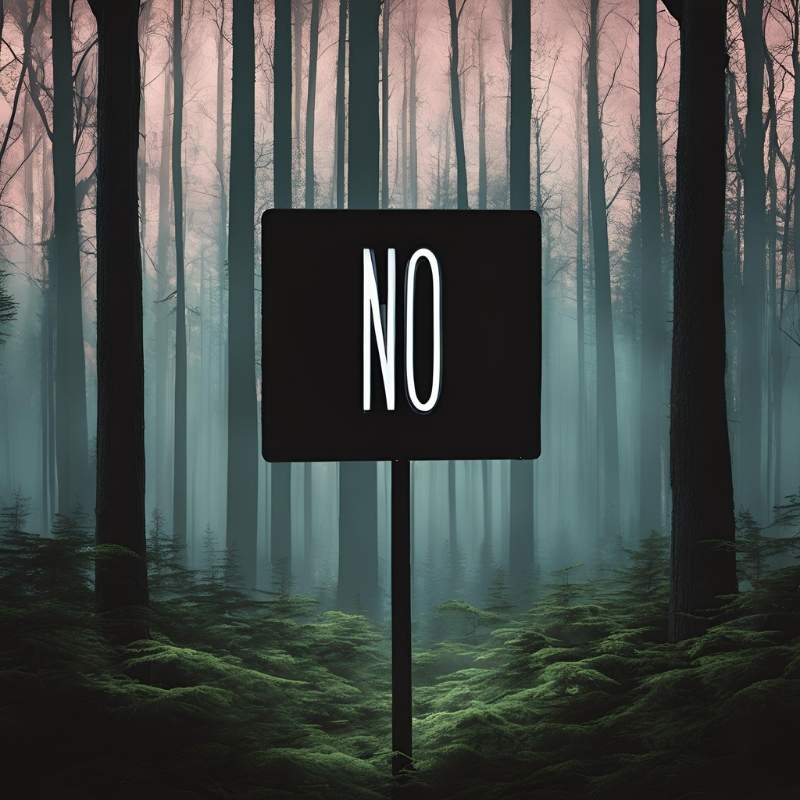
Pay attention to these red flags of having your personal boundaries violated:
- You feel the need to defend your boundaries (because the other person is resistant to you setting them for some reason).
- Your “no” isn’t being respected, and the person keeps doing the behavior that causes you to feel threatened or uncomfortable.
- Your personal space is being violated, and the person is touching you or standing too close to you in a way that makes you feel gross or unnerved.
- You aren’t being listened to, and you keep getting spoken over or ignored.
- You’re experiencing emotional abuse, and the other person mocks, denigrates, or manipulates you.
- You’re being pressured to act in a certain way or do something that you don’t want to do.
- You’re being controlled and coerced to play a certain role.
- You feel as though you can’t negotiate with the person because it’s ‘their way or the highway.’
- You feel disturbed, exhausted, or on-edge after being around the person for reasons you can’t quite pinpoint.
You’ll find that sometimes, some people unintentionally violate your boundaries (e.g., showing up unannounced at your house as a ‘surprise visit’).
Other times – like what I’ve experienced a lot due to life circumstances – you’ll deal with people who have a dark triad personality (narcissistic, machiavellian, or psychopathic personalities) who seem to get pleasure out of overstepping your boundaries as a way of ‘testing’ you.
Remember that you are a sovereign being, and your boundaries are sacred. They’re your protective bubble to keep, maintain, and assert at will.
Why Do We Suffer From Poor Personal Boundaries?

Before going too deeply into the understandable urge to blame or shame yourself in some way for having poor boundaries, I want you to understand that it wasn’t your fault, but it is your responsibility to develop strong boundaries now. So take a moment to feel some compassion, or at least sympathy, for yourself.
As children, we had no control over what our parents, teachers, and the adults around us taught us.
As a result, most people with absent or weak personal boundaries as adults struggle to feel confident enough to draw a line and adequately tend to their needs.
The codependent dynamics within our families, as well as being taught that “love equals what we do, not who we are,” contribute significantly to this lack of internal solidity.
As children, the first role models we had of “acceptable” behavior were our parents and family members. So pause to reflect here: what messages did your mother, father, caretakers, siblings, or other adults send to you growing up?
Were you only given love when you pretended to be who your parents or caretakers wanted you to be?
Were you only rewarded when you went out of the way to sacrifice your needs and desires in favor of someone else’s?
Were you punished for saying “no” or speaking up?
For over a decade, we've strived to make this website a haven of free, valuable information. Imagine a world where this knowledge wasn't readily available. If this post sparked a meaningful insight or helped you in any way, please consider a donation as a heartfelt "thank you" for keeping this resource free. Every contribution, big or small, allows us to keep giving back.
Did you feel obliged to emotionally “take care” of an adult, perhaps a parent?
These were all signs that you were taught that it was “good” to lack personal boundaries.
5 Myths About Personal Boundaries That People Believe

If you struggle with setting clear boundaries, you might carry a number of mistaken beliefs that you were conditioned to believe.
Here are some myths to be aware of:
- “Having personal boundaries is selfish.” – This myth is probably the most common one out there and it’s based on the unhealthy belief that in order to be worthy, we must be martyrs constantly self-sacrificing our needs. In reality, having boundaries is a form of self-respect that allows us to practice self-love, which can ripple out into the world and positively influence those around us. Take a moment to reflect on any good therapist or mental health professional. How do they do their job effectively? The answer is by having strong and clear personal boundaries. (Imagine taking on all the issues of those you serve – how exhausting and overwhelming!) The truth is that all mentally and emotionally healthy people possess clear boundaries.
- “Having personal boundaries will cause my relationships to suffer.” – If you are in a codependent relationship, creating boundaries will most certainly create uncomfortable waves of change. If your partner is codependently entangled with you, there’s a high chance that they will be shocked and will certainly resist your efforts to be happy and healthy. (The same thing goes for codependent friendships.) If you find yourself in this situation, I encourage you to consider whether being in a toxic relationship/friendship is actually worth it. All healthy and supportive relationships will actually THRIVE and encourage the establishment of personal boundaries.
- “Having personal boundaries will cause people to dislike me.” – This myth is partly true and partly false. The reality is that, yes, setting clear boundaries might step on a few people’s toes. But creating boundaries will also cause more people to respect, hear, and like you. There’s nothing more admirable than a person who refuses to take bullshit from others and who stands by what they believe to be true. Not only that, but when you set boundaries, you’ll actually attract more people who are willing to respect you and be authentic friends or lovers.
- “Having personal boundaries will make me miserable.” – This myth often appears as an underlying assumption that many people carry. But my response is simple: creating personal boundaries might feel uncomfortable at first, but pretty soon, it’ll make you feel empowered and in control of your life again. So the opposite here is true: having personal boundaries will actually make you MUCH happier!
- “Having personal boundaries sounds rigid.” – Personal boundaries are not black or white or set in stone – they are flexible according to your needs in the moment. So don’t feel the need to be harsh and cut people off. There’s a big difference between rigid boundaries and healthy boundaries. Rigid boundaries are walls constructed to permanently block people out, whereas healthy boundaries are adaptable and can change according to our inner needs.
Boundaries and the Spiritual Awakening Journey – Why They’re Crucial

Creating healthy personal boundaries doesn’t just benefit our everyday interactions with others, but it also enriches and strengthens our connection with our Souls.
When we’re constantly looking outside of ourselves and people-pleasing, we tend to forget that we all have a unique path in life, and it’s our job to listen to our true callings.
Lacking boundaries means that we’re frequently looking to others for direction and getting codependently enmeshed in their lives rather than focusing on our own.
Sometimes, what happens is that we get so wound up in other people that we “lose” ourselves. We experience a kind of soul loss (or being disconnected from our souls) that creates feelings of emptiness, loneliness, aimlessness, anxiety, and depression.
Lacking self-awareness of our true needs because we have poor boundaries, we may even fall into a Dark Night of the Soul where we feel totally lost and disconnected from our Higher Power (whatever that personally looks like).
Creating boundaries is an essential part of the spiritual awakening journey because it supports us in being true to ourselves, embracing our inner lone wolf, and walking our own paths.
12 Benefits of Creating Strong Personal Boundaries

Here are some benefits that you can expect from putting in the hard work of setting clear boundaries:
- You’ll be able to say “no”
- You’ll feel empowered again
- You’ll feel more in control of your life
- You’ll attract healthy + supportive partners and friends
- You’ll have more mental, emotional, and physical energy
- You’ll be able to speak up and be heard
- You’ll feel more appreciated and valued
- You’ll be more in touch with your needs
- You’ll spend more time on yourself (without the guilt)
- You’ll experience more emotional balance and happiness
- You’ll experience increased self-esteem and self-worth
- You’ll feel more courage and freedom to be yourself
Remember that these qualities won’t develop overnight, but with practice and persistence, you’ll be able to experience many of these empowering benefits.
9 Ways to Create Personal Boundaries That People Don’t Ignore
Creating boundaries is less about other people and more about you and the beliefs and mindsets you have.
The following practices and pieces of advice will help you target both your core beliefs and habitual behaviors.
1. Understand that you have the right to have boundaries

Lurking underneath the surface of people-pleasing behavior is the belief that we “have no right” to set boundaries. It’s time to challenge this ingrained assumption.
Why are others allowed to have boundaries and not you? Why must you feel like a lesser human being and elevate others above yourself?
It is a fundamental right of all human beings to have personal boundaries. Consider it your birthright to establish boundaries that define and protect you. Not only is it your right to create boundaries, but it is also your responsibility.
2. Understand that your thoughts, feelings, and needs are equally important to others

No one’s thoughts, feelings, or needs are “above” anyone else’s. Social status is an illusion created by the human mind.
In other words, the Queen of England’s needs are equal to a homeless person’s needs. The only division created between us and others exists in the mind. Therefore, you are not “less important,” valuable, or worthy than others. Your needs are equally important to those in your life.
Learn to see yourself as equal to others. Affirm your worth each and every day with a mantra such as “I am worthy and my needs are important.” Learn to disagree with those who try to make you think or feel otherwise.
3. Explore your needs
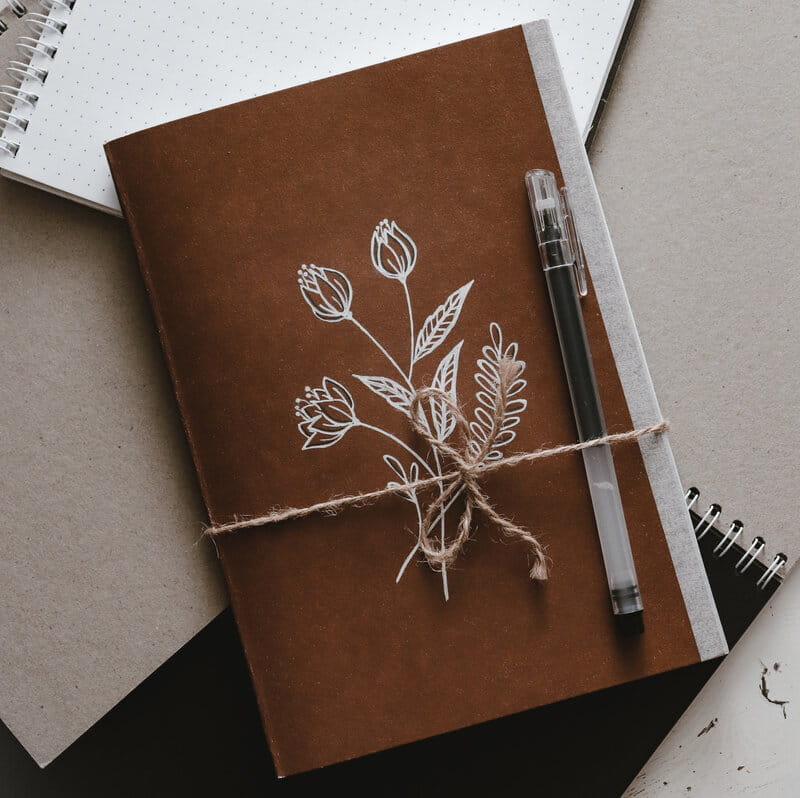
Chances are that you don’t have much experience or knowledge of your true needs, especially if you ignore them to cater to others’ demands. Now is the time to start learning more about yourself.
Keep a daily journal in which you record your thoughts, feelings, needs, and desires. Practicing self-reflection and introspection will help you to become more in tune with what you really need at any given moment. (Here are some journaling ideas.)
Practicing a few simple mindfulness exercises is another powerful way to know what boundaries you need to set during the day.
Dedicate yourself to tuning into and learning more about who you are and what you really want out of life. This is one of the best ways to begin setting personal boundaries.
A fun way to start learning about who you are is by taking self-discovery tests (take a look at our many insightful tests!).
4. Practice daily self-care (because you’re worth it!)

Practicing daily self-care is a supplementary practice that will bolster your ability to set clear personal boundaries.
When you get into the habit of nurturing yourself, you’re already setting yourself up for success. You’re sending yourself the message that “I’m worth taking care of.” Setting firm boundaries will then seem like the next natural step in your self-care routine.
Simple ways to perform self-care include taking time to relax, practicing meditation, making delicious and nutritious food for yourself, exercising, setting daily goals, complimenting yourself, rewarding yourself, taking a nap, connecting with nature, drinking a soothing cup of tea, and many other practices.
Check out this article on self-love for more suggestions.
5. Learn to say “no”
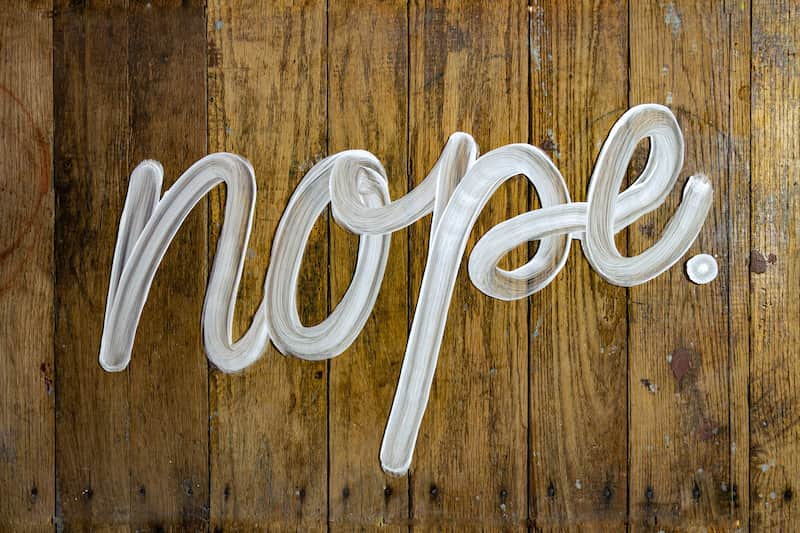
Saying no is a key part of learning to be assertive and honoring your needs. You don’t need to flat out or aggressively say “no” if the situation doesn’t call for it.
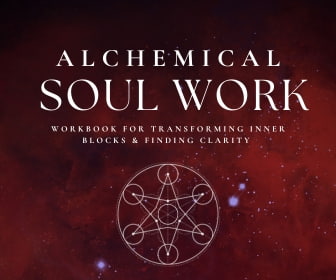
Feeling Lost?
The Alchemical Soul Work Workbook provides you with a clear path to clarity through the seven ancient stages of alchemy. With 50+ journaling prompts, you'll dissolve old patterns and forge a stronger connection with your Soul.
Instead, you can try saying phrases such as “No thank you,” “I can’t,” “I’m not able to,” “Not now,” “I’m busy, sorry,” “Maybe next time,” “I appreciate the offer, but I’m unable to,” and so forth.
Experiment with different ways of saying no and see what feels most resonant with your personality.
6. Identify when people cross the line (aka., “difficult people”)

It’s not always easy to identify when others overstep your boundaries, particularly if you’re used to not having any. However, there are some types of people (let’s call them “difficult people”) who quite blatantly cross the line.
Take time to record in a private journal each day all of the moments when you felt uncomfortable, upset, or disrespected by someone during the day. This journaling exercise will help you to develop more self-awareness.
Another way to know when people have overstepped your boundaries is by tuning into your body. Try to notice when you feel sensations like butterflies in your stomach, tension in your shoulders, or an increase in blood pressure, which will manifest as feeling flustered and hot.
Use these sensations as triggers to help you tune into the present moment and practice boundary setting.
To set boundaries with difficult people such as narcissistic, histrionic, and other egomaniac types:
- Create a list (on your phone, in your journal, etc.) of ways to say “no” that don’t stir up drama and preserve your energy (see the previous point on this list)
- Try to create as much physical, mental, and emotional distance from them as possible whenever you can
- Don’t get invested in their chaos – remember that they are responsible for themselves and their own well-being
- If you’re stuck dealing with such a person, try the “grey rock” method of self-protection where you become as bland and neutral as possible so as to stay grounded and calm
7. Stop overcommitting

You’re not obliged or indebted to uphold every single social commitment that you have. Don’t try to please others at your own expense. Committing too much to other people and circumstances creates stress and burnout.
Learning to say no to non-essential things like work get-togethers, parties, and other social duties that are not life-or-death takes practice.
So be gentle with yourself, remind yourself why you’re on this journey in the first place, and graciously decline whatever “fills your cup” too much. At the very least, others will appreciate your honesty.
8. Be courageous: let go of toxic friendships and relationships

It takes a certain level of courage to stick to your personal boundaries. Fake friends and flimsy relationships will inevitably self-destruct and fizzle away during this process. As a result, you might be left with feelings of guilt, shame, or feel like you’re doing something wrong.
It’s vital in these tough times to keep affirming that setting personal boundaries is your fundamental human right. You are WORTH it.
Those who try to control, use, or abuse you will likely try to stop you – but don’t let them hold you back. Step away from those people who are polluting your life and seek out new friendships that are supportive and uplifting.
9. Seek help (but not from friends or family)

If you still need help setting strong personal boundaries, chances are that those around you probably reinforce codependent behavior. So it’s not a wise idea to seek advice from them, however well-intentioned they may be.
If you need more in-depth advice and personal assistance, I recommend either reading a book such as Boundaries: When to Say Yes, How to Say No by Henry Cloud and John Townsend, or seeking the help of a therapist (or both).
I also recommend checking out the Sacred Boundaries Journal I’ve created to help you set clear, empowered personal boundaries.
If you’re a sensitive soul who doesn’t know how to say ‘no’ effectively, this journal can help you tune into your inner needs, access increased energy, and find more balance and self-sovereignty in life.
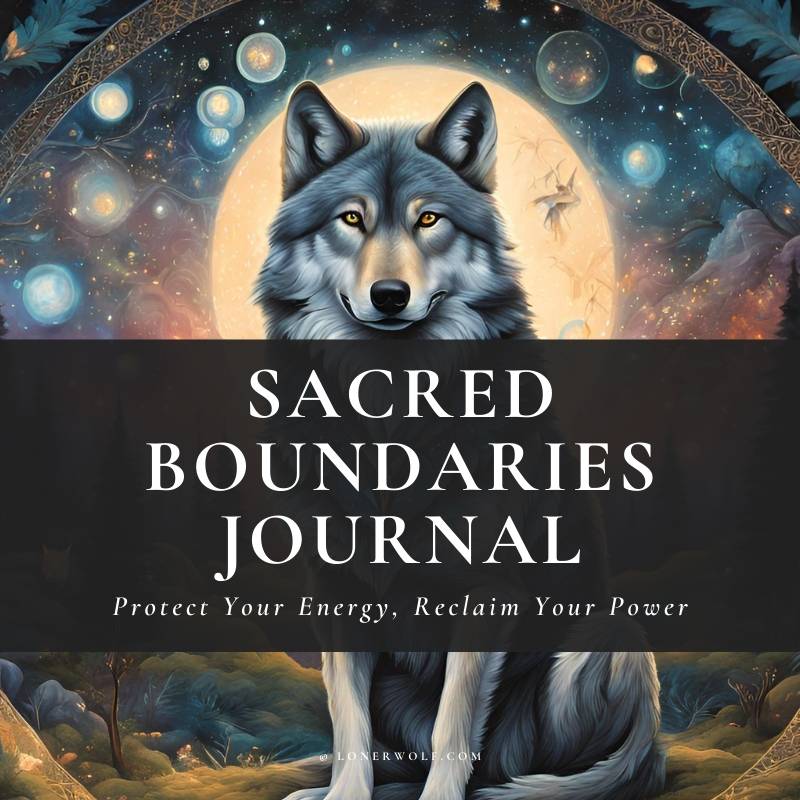
It features:
- 100% editable & printable format
- 30+ journaling prompts exploring the physical, mental, emotional, and spiritual dimensions of setting boundaries
- Lush images with quotes
- Healing mantras
- Oracle/tarot card spreads
- Book recommendations
You can download it as a bonus in our yearly LonerWolf Supporter Membership tier, where you get this journal plus a whole month of intuitive guidance and personal spiritual support.
This journal was a joy to create, and may it serve you well!
Final Words
To end, I want to remind you to be mindful of approaching this journey with gentleness and self-compassion.
You weren’t responsible for developing poor boundaries (it was how you were conditioned). However, you are responsible for now changing them and owning your personal power. I hope this article has given you some helpful pointers to help you do that.
Tell me, what experiences have you had with people overstepping your boundaries? And what advice can you give to others in your situation? I’d love to hear from you in the comments!
Whenever you feel the call, there are 2 ways I can help you:
1. The Soul Work Compass Course: Ready for deep transformation without the fluff? The Soul Work Compass provides a step-by-step path to finding your inner truth and life direction. Heal core wounds, clarify your values, and walk away with a concrete guide for living. Get started now!
2. The Inner Work Journal Bundle: Stop surface-level healing. Dive into the depths with 150+ journaling prompts designed to help you face your demons, heal childhood wounds, and embrace your shadow. Three sacred journals, lifetime access, print as many times as you need. Real transformation starts here.
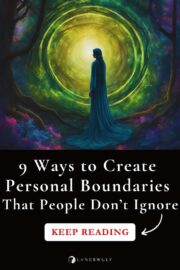
 $3
$3
Thanks for the article.I have a friend/relative who calls me every week and will be on the phone from an hour to two hours. This would be different if it was a give and take conversation, but it is always about her all the time.If I say something, she tells me I am wrong. When I make excuses to get off the phone, she offers to call me back. Often, I let her phone calls go to voice mail. I realize as an older person I need a social network and I realize she does, too.
One thing you might try is scheduling the calls with fixed start and stop times, once a week or whatever frequency suits you both. Have a nice good-bye phrase ready and when the agreed-upon end time draws near, USE IT. Sweetly and politely, of course. She may be miffed the first time or two, but with luck she’ll get used to it soon. If she suggests she can call back later, let her know that you’re very busy but you look forward to your next scheduled call.
And if that doesn’t work, you may want to reevaluate the friendship. Just because you both need social interaction doesn’t mean you need to feel used. Nobody needs that kind of interaction.
Some great advice from Beth above. I would say before that, however, to reconsider the friendship. If you have tried sharing things about yourself but get a blank/empty/uninterested response, the connection is unhealthy. What you’re experiencing is called conversational narcissism — not to call your friend necessarily a narcissist, but she may either have (a) lack of self-awareness, (b) desperation to be heard, (c) poor social skills. Perhaps all three. I’m not sure how often she tells you that you’re wrong, but if you feel an overall sense of depletion and frustration after such calls, I’d recommend finding new connections to forge. 💜
hi. i’m in this relationship now. i’m an atheist who has been approached by christians who were preaching to me. i told them i had been interested in POSSIBLY coming back to the faith. hearing it out. but things got weird. i started to go to church, meet people, try to absorb and understand their beliefs. give it a fair hearing. but i was still on the fence. unfortunately, their fanaticism turned into an unhealthy relationship. two of these persons became obsessed with converting me into their absolute zealotry, to the point of being subtly shaming and passive aggressive. i was made to feel pressured to obey god, to read scripture, lectured that my soul was at stake, and when i started to feel uncomfortable and withdraw from regular church attendance, i received texts about how god( and them) were so disapointed in me, and how i should be making more of an effort. my boundaries were drawn, my declines were polite, but they were pushed against. i was informed i needed to reconsider, i need to be there, i need to be a true believer.told i was making excuses. no, i was defending my boundaries and stated that i was not sure i had those beliefs and wanted that time for activities more in line with my preferences. in other words, i was defending my right to live authentically. in addition, one of them became obsessed with people pleasing me, demanding to do me favors, at his own expense, not heeding my protest because i knew it would be unfair to him. but he insisted, aggressively insisted on going out of his way to get me food, run errands, etc. then he would guilt trip me when i relented, telling me how awful i was for taking advantage of him….after he practically yelled at me to allow him to do it! this crazymaking passive aggressive toxic behavior has been deeply unnerving. the worst part is the cover story, he’s just “being nice” and “trying to help” me, this supposed poor little lamb who needs some savior and should be so very grateful for the saving. this vision they have ,this misperception, has led me to now having to be the “ungrateful bad sinner” in their eyes, who is choosing to live wrong according to their beliefs. but i know i’m not wrong. i’m not the holder of all truth either. i’m just me, i have reasons for my beliefs, and i completely respect theirs, but i know i shouldn’t be browbeaten into giving up who i am to be a clone of them. that is a lack of respect, an ignoring of boundaries, and it is asking me to betray myself, to be a liar or to be someone else, and that is not fair. i am myself, and i cultivate what is true to myself, i am no else’s pet project, some object to mold in their image for their edification. i hope someone here understands, can relate, and can give feedback.
Yes, yes, and yes! 🙌
It sounds as though you’re being bullied, harassed, gaslit, emotionally manipulated, and a bunch of other despicable behaviors, Terence. I’m so glad you respect your boundaries and sanity enough to move away from this toxic group of people. Fanaticism is a scourge to the soul and a desecration of your autonomy and sanity. As someone who has experienced religious trauma and abuse, I recommend that you set a hard boundary and get the heck away from these folks. Very disturbing behavior indeed.
I Am so sorry you have to go through all of that.
There is a lot of recognition in what you are writing down.
DO NOT, hesitate yourself please.
Stay true to you! That is the most important thing. How hard they yell at you, and try to convince otherwise.
The only ‘people pleasing’ behaviour that is acceptable, is pleasing YOUR needs.
Take time to check in with yourself, how does it feel?
You are already doing so. Keep trusting in that, overtime it will grow stronger.
Good luck! 🙏🏼
I think everything you both say and do help me so much I appreciate your insight and sharing it with everyone is so great Thank-you Debbie
I appreciate you sharing this Debbie, thank you for your lovely comment and beautiful energy 💜
I feel i might be in limbo. This in between space between have learned my first wobly steps, But didnt had the time to practice them yet.
The end of 2022 when i started working in your self love journal. That changed a lot for me when it came to selfcare including boundaries.
But because of this ongoing limbo – isolated/ hermit mode, i also didnt had a lot of real life opportunities to practice my new learned boundary setting “skills”.
To see if I am really capable to speak up. Usually speaking up is the moment were my whole body goes in this heart palpitation, high alert, on edge, cortisol rush stress mode. Which takes me days to recover from. For that i still prefer to be the “bigger adult” exactly how i learned to do since 3 years old orso. Cause that is causing me the least consequences.
But isnt that some sort of re traumatizing myself? Abandoning my innerchild. (Again…??)
I was in doubt if i should by this journal as well, considering i cant buy them all.
But i might just have answerd my own question. 🤭
And another topic that came to surface, conditioned limiting beliefs about spending money. Thats really a difficult red thread in my family line. (Especially when living a low budget life. So much guilt and shaming when spending money, and feeling the need of (over)explaining and defending myself.)
I’m not sure of your precise question, Evelien, but it may help to take small “titrated” steps when it comes to speaking up so you don’t trigger your inner child into a fight or flight state. This could mean standing a little taller, making a little more eye contact, saying one or two words, etc. Do this while staying connected to your breath and body so you don’t spin out or dissociate. I’m not sure where you’re at, but remember to move slowly and gently.
I moved on from exes and even moved away from home because my boundaries weren’t respected. It feels almost surreal that I’ve been with a man for 4 years who always made me feel guilty and gross. When I stepped away from his line of sight or wanted to stay at a fun place for a little while longer when he was over it, he grew a titty fit. Once he scolded me in the corner like a child, saying I would get r*ped if I were to go to my favorite bar alone to listen to the live music (it was 5 minutes away). He also made me feel bad when I spend time by myself working on my art claiming that I only care about myself. Glad to say I’ve been over it since I broke it off :U fuck that guy but I wish him well with his life.
It was a very suffocating experience, next to my parents’ spiraling moods. I didn’t drive at the time either so it was a bigger mission to get permission to spend time with my friends, fulfilling a peace of mind for my parents. Sometimes they even COME with me sitting at the back of a theater or at a table in a restaurant. Now if I share details about any social events with my parent I’m spammed with “be safe” “no drinking and driving” and baby pictures of me through text message :x ….
Even in my current happy relationship going on 3 years this month, I still need to form healthy boundaries. I’m a creator and a crafter so I seek opportunities to grow and network. I need my partner to trust me even if these other creators turn out to be dudes. I have yet to really adopt my own social life with my own friends. My boyfriend and I pretty much do everything together, but show some signs, like when I wanted to make a girl’s movie night to see Barbie… he wanted to come too LMAO.
So here is my challenge…. When I am sparking conversations with new people all on my own, my body tells me with jitters, sweat and rabbit-playing-bongo-drum heart beats that this is all very new to me and that I still somewhat feel guilty of pursuing this independence. So like what the fuck is it lmao? Am I being loved too hard? Am I being controlled? Or is the universe protecting me???
Long response I know >< I learn through writing stories and creating characters with a bunch of “what ifs”, seeing how they can bounce back and recover, and even exploring narcissistic archetypes. That’s the “advice” I like to give is to just write about it, journal or completely fantasy, an empathy can grow either way.
If you have a history of attracting controlling people, I’d be super mindful of that in any and all of your relationships moving forward. You might also like to examine what part of you may feel the need to be taken care of by others, which may create an unconscious dynamic of attracting controlling people who want to fulfil that role. Some inner child work may be in order. :)
After journaling through this article, I have also become aware of the fact that, because of the constant violations in my life, and therefore, my lack of boundaries, that I too have also violated (unthinkingly) others boundaries due to “not knowing any better”. Wow … Powerful realizations on both side of this coin!!
Thanks for your honesty, Kathy! I believe we’ve all unintentionally overstepped boundaries (I know for me, that has been trying to go too deep too quickly with others, which can feel threatening). I appreciate you sharing this 💜
Thank you for this topic; especially in spritual environments, where ‘oneness’ and non-ego are ‘the norm’ it is essential, in my experience 🙏🏼👌
Oh, 1000%. In fact, those are my least favorite environments to be in because often the vibe is too spacey and dissociated *she says as a spiritual educator* 😂
Aletheia,
Thank you so much for this article. It couldn’t have come at a better time for me. I’m leaving a long-term relationship where my boundaries were rarely respected. It got to the point that I was ready to give up trying to be happy to keep the peace and avoid a confrontation. Establishing some clear boundaries is something that I need to work on.
I’m so glad you’re listening to your need for boundaries, Don. Good on you for honouring your sanity. I wish you the very best through this likely rocky but liberating time 💜
What a coincidence this appeared today. Although, I don’t believe in them so much. I experience this exact situation daily with an ex stalker who knows no boundaries whatsoever! He has psychopathic, narcissistic tendencies being the shitty human he is. Unfortunately, it’s been 3 rather long years and torture and abuse. He belongs behind bars and hopefully one day, that goal will be fulfilled. As for now, ima keep being me and living my life.
Oh Christine, that sucks! I’m so sorry to hear that you’re experiencing this kind of abuse. Keep maintaining those rock solid boundaries and take good care of yourself 💜
My boundaries have been a difficult journey. I grew up in a dysfunctional home environment, had an alcoholic father, a passive and codependent mother and alcoholic grandparents. My parents divorced when I was very young and I ended up living with my grandparents, then sent to my father at one end of the country, and then to my mother at the other end of the country. Learning to say no, establishing boundaries and working on my self confidence is still a work in progress at 64 yrs old. Your article today really resonated with me, especially letting go of toxic work relationships and toxic friendships. I literally have no friends and very few acquaintances and I’m ok with that. My bullshit tolerance is extremely low. I’m at peace knowing I can put myself first and be comfortable in my own skin doing so. Thank you!
Exactly as it should be E 😌